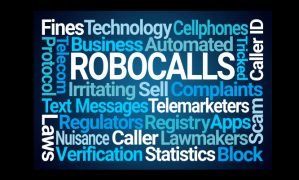The frustration that comes with answering an unexpected call in the middle of something important only to find that the caller has spoofed a number that you recognize and it becomes a telephone solicitation is maddening. So much so that Michigan Attorney General Dana Nessel has joined colleagues in all 50 states in urging the Federal Communications Commission to require telecom companies to crackdown on the practice of number spoofing and illegal robocalls.

Nessel and 50 other Attorneys General have today urged the Federal Communications Commission (FCC) to encourage those telecom providers to implement default call blocking technology and call authentication solutions in order to block illegal and unwanted robocalls, and to protect consumers from caller-ID spoofing.
The letter from the Attorneys General comes after the FCC issued a declaratory ruling and proposed new rules related to federal and industry efforts to block illegal robocalls and eliminate caller-ID spoofing. This effort comes following last week’s unveiling of the Anti-Robocall Principles to fight illegal and unwanted robocalls by the Attorneys General and 12 major telecom providers.
AG Nessel says, “The FCC is integral in holding telecom providers accountable,” and adds, “We hope that the FCC will heed our advice to protect consumers in Michigan and across the country from caller-ID spoofing and the flood of illegal and unwanted robocalls.”
In their letter, the Attorneys General state that telecom providers should:
- Offer free, default call-blocking services to all customers based on reasonable analytics that do not block important calls such as emergency alerts or automated calls requested by customers;
- Implement the caller-ID authentication technology – known as STIR/SHAKEN – which will help ensure telephone calls are originating from secure, verified numbers as quickly as possible;
- Develop separate landline caller-ID authentication to prevent illegal and unwanted robocalls to seniors or those that live in rural areas; and,
- Ensure that call blocking and call authentication efforts protect consumer data.
Many of these actions reflect the Anti-Robocall Principles established and released late last week by the Attorneys General along with these companies:
- AT&T
- Bandwidth
- CenturyLink
- Charter
- Comcast
- Consolidated
- Frontier
- Sprint
- T-Mobile
- US Cellular
- Verizon
- Windstream
These principles address illegal and unwanted robocalls through prevention and enforcement.
Attorney General Nessel joins 49 other state Attorneys General along with Washington, D.C. in submitting the comments in this document: AGCommentsToFCC






